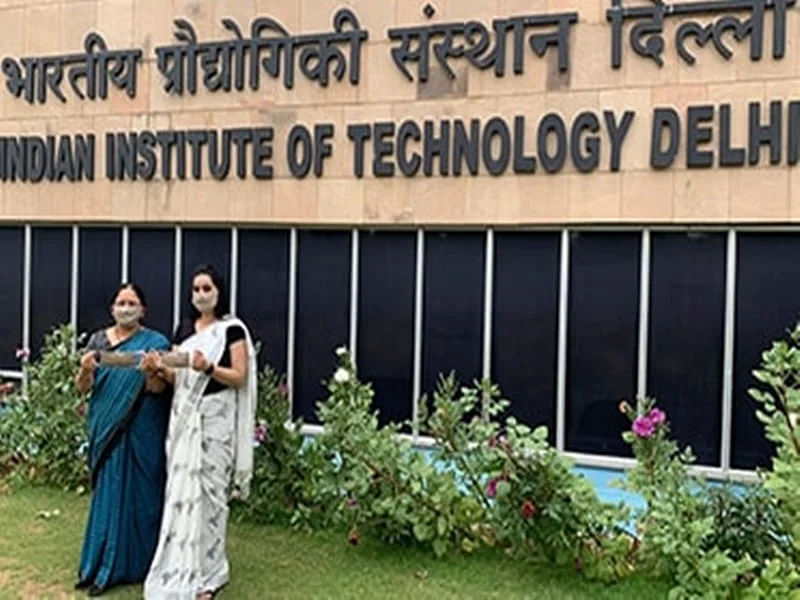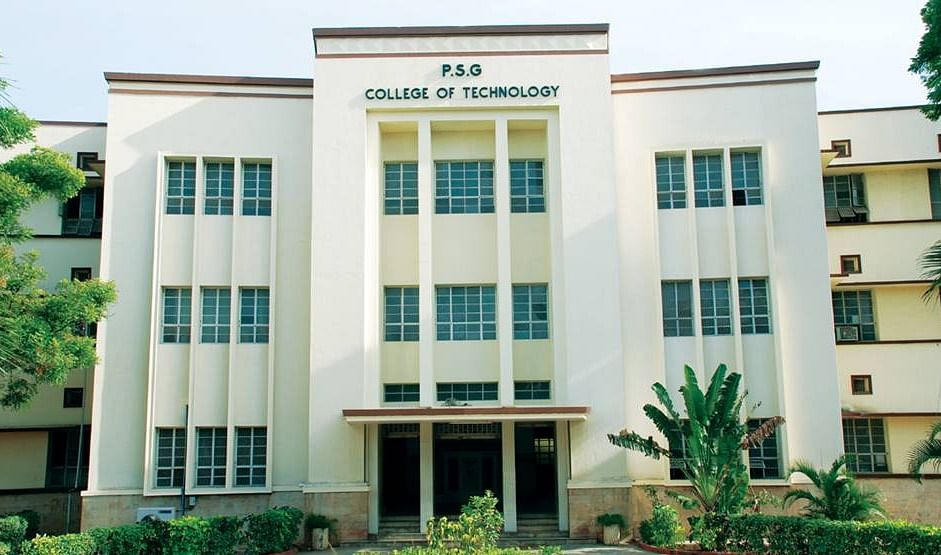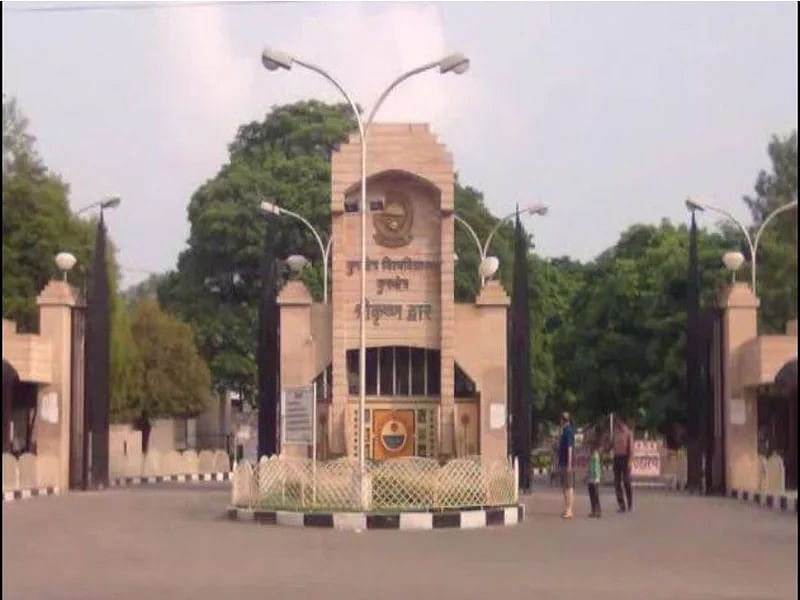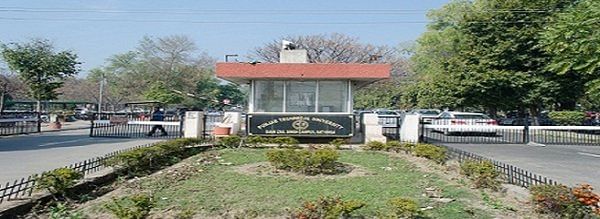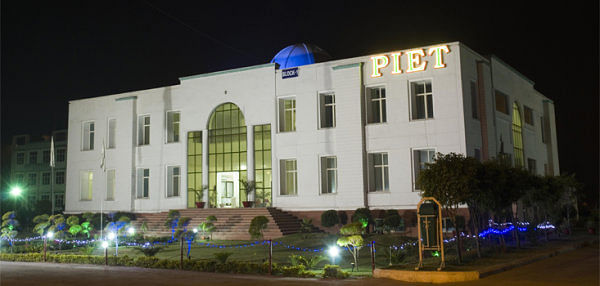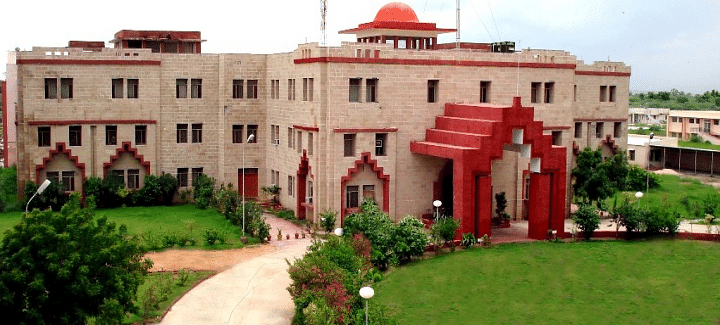B.Tech Textile Engineering Syllabus and Subjects

B.Tech Textile Engineering syllabus is split into eight semesters. This syllabus is designed primarily to impart hands-on experience and skills to advance in the textile industry. B.Tech Textile Engineering graduates have a wide range of career options. B.Tech Textile Engineering subjects cover fundamental engineering concepts as well as textile engineering principles and components.
Semester Wise B.Tech Textile Engineering Syllabus
The four-year B.Tech Textile Engineering curriculum is split into eight semesters. The primary B.Tech Textile Engineering subjects are Advanced Theory of Textile Structure, Textile Formation, Textile Testing, Computer Application in Textiles etc. The following is a list of B.Tech Textile Engineering topics, organised by semester.
| Semester I | Semester II |
| Organic Chemistry Laboratory | Communication Skills |
| Physics Laboratory | Analytical Chemistry Laboratory |
| Inorganic Chemistry Laboratory | Organic Chemistry Laboratory |
| Engineering Graphics - I | Engineering Applications of Computers |
| Applied Physics - I | Applied Physics - II |
| Applied Mathematics - I | Applied Mathematics - II |
| Organic Chemistry - I | Material & Energy Balance Calculations |
| Inorganic Chemistry | Analytical Chemistry |
| Organic Chemistry - II |
| Semester III | Semester IV |
| Analysis of Textile Chemicals | Fibre Testing & Analysis Lab |
| Physical Chemistry Laboratory | Colour Physics Lab |
| Electrical and Electronics Engineering Laboratory | Textile Pretreatment Lab |
| The technology of Textile Polymers | Colour Physics & Color Harmony |
| The technology of Fibres I | The technology of Fibres II |
| The technology of Yarn & Fabric Manufacturing | Techniques & Theory of Textile Coloration |
| Physical Chemistry | Tech. of Textile Pretreatments |
| Electrical and Electronics Engineering | Transport Phenomena |
| Engineering Mechanics and Strength of Materials |
| Semester V | Semester VI |
| Tinctorial Chemistry Lab | Instrumentation |
| Evaluation of Dyes & Speciality Chemicals | Experimental Dyeing II |
| Experimental Dyeing I | Experiments in Printing |
| Testing of Textile Materials | High-tech and Industrial Fibres |
| Chemistry & Application of Speciality Chemicals | Textile Process House Management |
| The technology of Finishing II | The technology of Non-Wovens |
| The technology of Finishing I | The technology of Garment Manufacturing |
| Chemical Engineering Operations | The technology of Textile Dyeing & Printing |
| Chemical Reaction Engineering |
| Semester VII | Semester VIII |
| Project Economic | Basics of Colouration Technology |
| Lab Testing of Textiles & Garments | Experimental Project |
| Experiments in Bulk Colouration | Finishing & Evaluation of Textiles |
| Introduction to Technical Textiles | Wet Processing of Textiles |
| Emerging Textile Processing Technologies | Testing of Dyes, Chemicals & Auxiliaries |
| Chemistry of intermediates and dyes | The technology of Garment Processing |
| Environmental Aspects of Textile processes | Merchandising & Designing of Textiles |
| Industrial Psychology and Human Resource Management | Design and Analysis of Experiments |
| Project Economics | Industrial Management |
| Project and Viva-Voce |
B.Tech Textile Engineering Subjects
B.Tech Textile Engineering subjects can be split into two categories: central and elective subjects. The B.Tech Textile Engineering program requires students to work as an intern and complete assignments. Students should choose electives based on the interested textile specialisation. Following are the B.Tech Textile Engineering subjects.
B.Tech Textile Engineering Core Subjects:
- Characteristics of Textile Fibers
- The Technology of Pre-weaving Process
- Solid Mechanics
- The Technology of Yarn Spinning
- Process Control in Spinning
- Training
- Research Project
B.Tech Textile Engineering Lab Subjects:
- Fabric Manufacture
- Textile Chemical Processing
- Fabric Structure & Analysis
- Yarn Manufacturer
- Textile Testing
- Knitting Technology
B.Tech Textile Engineering elective subjects:
- E-Commerce
- Advanced Casting Method
- Applied numerical techniques
- Maintenance and Reliability Engineering
- Product Design and Development
- E-Commerce
- Value Engineering
- Manufacturing Information System
- Industrial Safety
- Value Engineering
- Manufacturing Information System
- Advanced Casting Method
- Applied numerical techniques
- Maintenance and Reliability Engineering
- Product Design and Development
- Industrial Safety
B.Tech Textile Engineering Course Structure
The study of existing products used to produce textiles is indeed a feature of a B.Tech in textile engineering. Certain topics, such as mechanical engineering and chemical engineering, are discussed briefly to provide greater comprehension. Following is the general course structure in the B.Tech Textile Engineering:
- Eight Semesters
- Textile Engineering Core Subjects
- Textile Testing and Processing Labs
- Computer Applications in Textile
- Information Technology Application in Textile
- Workshops
- Project work
- Internship
B.Tech Textile Engineering Teaching Methodology and Techniques
B.Tech Textile Engineering teaching techniques primarily practical. Students are encouraged to do analytical testing and expected to intern to gain industry exposure. B.Tech Textile Engineering syllabus covers the fundamentals of textile engineering, but students must explore further and get creative. B.Tech Textile engineering programs typically last four years which includes lectures, seminars, and market analysis.
The following are some of the teaching approaches and innovations that are followed in B.Tech Textile Engineering education:
- E-Learnings
- Assignments
- Market Research
- Case Study Methods
- Practical Learnings
B.Tech Textile Engineering Projects
Projects in B.Tech Textile Engineering requires collaboration, teamwork, creativity, research skills, and analytical skills. Below are some popular B.Tech Textile Engineering projects are:
- Study of Wicking Behaviour of Bamboo Knitted Fabrics
- Development of Eco-friendly Sanitary Napkins from Recycled Fabrics
- The Effect of In-Plane Cyclic Stress on the Radial Wicking Behaviour of Elasticated Knitted Cotton Fabric
- Effects of Solvent Texturisation
- Thermal properties of Bamboo using various methods
- Effect of Phase Changing Materials in the Comfort of Sportswear
- Thermo-sensitive Polymer effect on the Physiological Comfort of Industrial Garments
- Thermal Transmittance Development of a Tester for Textile Fabric
B.Tech Textile Engineering Reference Books
B.Tech Textile Engineering reference books spur students’ creativity. Here is a list of top most reference books for B.Tech Textile Engineering students:
| Books | Author |
| Principles of Textile Testing | Booth J.E. |
| Textile Yarns: Technology, Structure, and Applications | B.C. Goswami and J.G. Martindale |
| Handbook of Textile Design | Wilson, J |
| Watson’s Advanced Textile Design | Grosicki |
| Textile Processing and Properties | T.L. Vigo |
